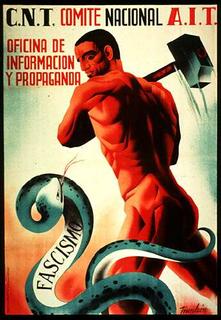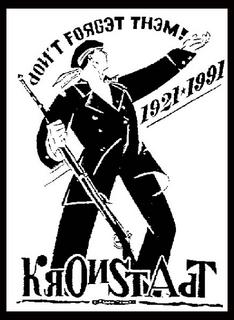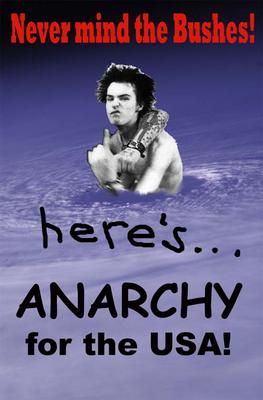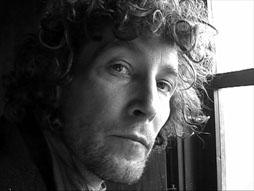Sid Vicious Return to New Orleans! Or why Anarchy Is a Good Thing
There seems to be many ways to look at the events in New Orleans. I always liked Sid Vicious and his take on things, especially when ‘Anarchy in the U.K.’ came around. Now how can one even think of the ‘anarchy’ in the flooded streets of lower Louisiana as a positive thing! The word anarchy is one of those loaded words meaning different things to different people. It’s usually batted about when situations of chaos have arisen; with bomb throwers, or like here in Italy, the so-called anarchists and their mail bombs. The press likes to vehemently denounce these groups as ‘insurrectionist anarchists’. (Also the ‘anarchist’ Black Bloc whose tactics I do not support!) There is not enough time here to get into the historical roots of the word, much less the history of anarchist movements, its philosophy and the scarce number of anarchist successes (see Kronstadt, Russia 1920’s; Seattle, early 1900’s; Barcelona during the Spanish Civil War). Nor am I interested in any semantic discussions with journalists, right-wingers or Marxists. What I want to talk about is how this disaster, this horrible plague of destruction by Hurricane Katrina and the ensuing chaos puts into high relief the question of who we are for one another as a society, of the modern state (I mean government) and the rule of coercive authority, and also of what we might call the human spirit. More specifically this crisis calls into question the role of the individual and society. These are for me the proper fields of discourse when speaking about anarchy (anarchism).
The plague: the great and crazy French poet and theatre artist and theoretician Antonin Artaud used the metaphor of the plague: The theatre like the plague should strip away the veil of all societal forms: the hypocrisy, the rule of violence, the fragile veneer of social order, the banality of daily life and ALL of its tedious concerns. And equally so, the individual when faced with crisis and a life and death struggle only the real and basic concerns of life matter: the desire to survive. Or perversely one sees exploding to extremes the driving forces that move ones desire, be it gold, sex, power or ego survival.
The plague: the great and crazy French poet and theatre artist and theoretician Antonin Artaud used the metaphor of the plague: The theatre like the plague should strip away the veil of all societal forms: the hypocrisy, the rule of violence, the fragile veneer of social order, the banality of daily life and ALL of its tedious concerns. And equally so, the individual when faced with crisis and a life and death struggle only the real and basic concerns of life matter: the desire to survive. Or perversely one sees exploding to extremes the driving forces that move ones desire, be it gold, sex, power or ego survival.
Anarchist poster : Spanish Civil War

What is important when crisis strikes? What becomes of our cherished ideas, of government, of religion and philosophy, of a life of status and prestige, of property and power? In a crisis of great magnitude all the ruling structures of our culture are laid bare and shown for what they really are: illusions, shells of thoughts and ideas. Just talk! And in the end, when confronted with harsh, brutal, relentless and raw life, such as the plague, or Hurricane Katrina- to use the vernacular: out come our true colors.
If in New Orleans we are surprised at the lawlessness, if we are shocked by the viciousness of individuals, if we are dismayed at the blatant racism, if we are disheartened by the ineffectiveness of government, if we are disgusted by yet another media frenzy feeding upon suffering, if we are left in wonder at the posturing and dallying of our president, if we are baffled by the callousness of the many absurd and ridiculous statements expressed in the press and on the Internet, well then, Katrina is the wake-up call that perhaps we need. For beyond the immenseness of the tragedy and loss of countless persons, the lesson to be gathered from this disaster is that it raises the question of who we are as a people, as a nation, and why have we so miserably failed.
When the forms and structures of our city fall away, the jails, the police, the law, the economies of buying and selling and of work, we are left naked and exposed to the brute reality of just what is a city: and what is a city? Without going too deep into an anthropological survey of its origins, I think we can safely say that a city exists on two basic fronts: one is a state of war where many poor people, and some other less poor people, must work and survive and scramble to procure their basic necessities- necessities which by the way are NOT scarce albeit for a false sense of scarcity created by a system that must create a false sense of scarcity in order to maintain a system of privilege and wealth. And on the other front we have the multitude of citizens who pacifically co-exist with each other: creating, helping, working, loving, despairing, hoping, dying: millions of mostly poor people who simply by reason of their innate goodness get along.
If in New Orleans we are surprised at the lawlessness, if we are shocked by the viciousness of individuals, if we are dismayed at the blatant racism, if we are disheartened by the ineffectiveness of government, if we are disgusted by yet another media frenzy feeding upon suffering, if we are left in wonder at the posturing and dallying of our president, if we are baffled by the callousness of the many absurd and ridiculous statements expressed in the press and on the Internet, well then, Katrina is the wake-up call that perhaps we need. For beyond the immenseness of the tragedy and loss of countless persons, the lesson to be gathered from this disaster is that it raises the question of who we are as a people, as a nation, and why have we so miserably failed.
When the forms and structures of our city fall away, the jails, the police, the law, the economies of buying and selling and of work, we are left naked and exposed to the brute reality of just what is a city: and what is a city? Without going too deep into an anthropological survey of its origins, I think we can safely say that a city exists on two basic fronts: one is a state of war where many poor people, and some other less poor people, must work and survive and scramble to procure their basic necessities- necessities which by the way are NOT scarce albeit for a false sense of scarcity created by a system that must create a false sense of scarcity in order to maintain a system of privilege and wealth. And on the other front we have the multitude of citizens who pacifically co-exist with each other: creating, helping, working, loving, despairing, hoping, dying: millions of mostly poor people who simply by reason of their innate goodness get along.
Yet, and it’s a big yet, in our CULTURE, what are the prevailing ideas that guide and influence the behavior and mindsets of these multitudes? Well if we look at “Big Brother” and other reality shows, for example, where to compete, lie, maneuver and basically F___ over your competitor is the way to win; if we examine the prevailing winds that say to be greedy and selfish is the way to get ahead; if we scrutinize conflict where to launch violence against your neighbors is justified; if we see that to get ahead in the world means to step over your co-workers; if we acknowledge that a person’s worth is based on how much one accumulates money and status symbols, we see then that many if not most, aspects of our so called culture are based on the cult of competition, greed and selfish individualism. With the messages that we are bombarded with everyday (not to mention the enormous amount of violence we see, and while I’m at it, thank you NRA, the idea that we have a right to buy and use guns to defend yourself, i.e. that killing is sometimes justified), IS IT ANY WONDER that what we have seen this last week in New Orleans presents the worst characteristics of our culture?!
In simple words, a crisis brings out the best or the worst in us. WE are to blame: not Bush, not the government, not the racism of Yahoo or the media. We have not laid the necessary groundwork of a caring nation. Which do we teach: Everyman for himself, or, All for one and one for all?

To finish: last night I saw the DVD Meet John Doe (by F. Capra). It’s the story of a rising social movement outside of the political mainstream of party politics, of a grass root movement of compassion for the underdog, of getting to know your neighbors (who nobody knows in America); of people solving problems by their own initiative (there was a telling scene of a welfare administrator lamenting that their offices were now becoming obsolete thanks to the work of community organizations, the John Doe Clubs.). This is exactly what is lacking in the USA. There is little sense of helping one another, of self-initiating and not waiting for the government, of creating real communities and extended families and tribes; of a real counter-culture to this culture of selfishness and greed. (All of these positive things DO exist of course, but they are drowned out by mass media and ‘popular’ culture, a veritable swamp of lies and false values.)
When disasters strikes, and I believe we will face other disasters soon enough in this world, be it crisis from energy, ecology or economic, then we will see the great distance between our professed ideas and ideals coming again into sharp relief with our actual behavior. To talk the talk is not enough; we must begin to walk the walk: with our neighbor, the stranger, the immigrant, the person of a different color, or religion or sexuality- to walk, rich and poor together. And hopefully the rich and the many of us who emulate their ethics and morals will let go of this culture of privilege and selfishness that continues to divide us. We see now too clearly just how dangerous and evil this society of the “me-culture” has become. It’s time we started preparing ourselves. Is this asking too much?





1 Comments:
Incredible post, thank you. I found your blog via blogcritics.org. I'll be back, often, and will post your essay on my own blog and link to it.
Post a Comment
<< Home